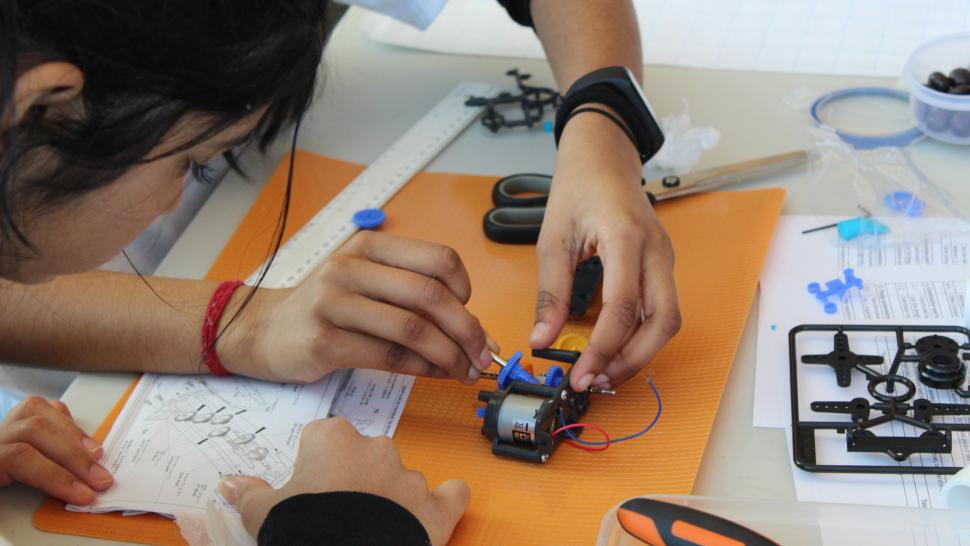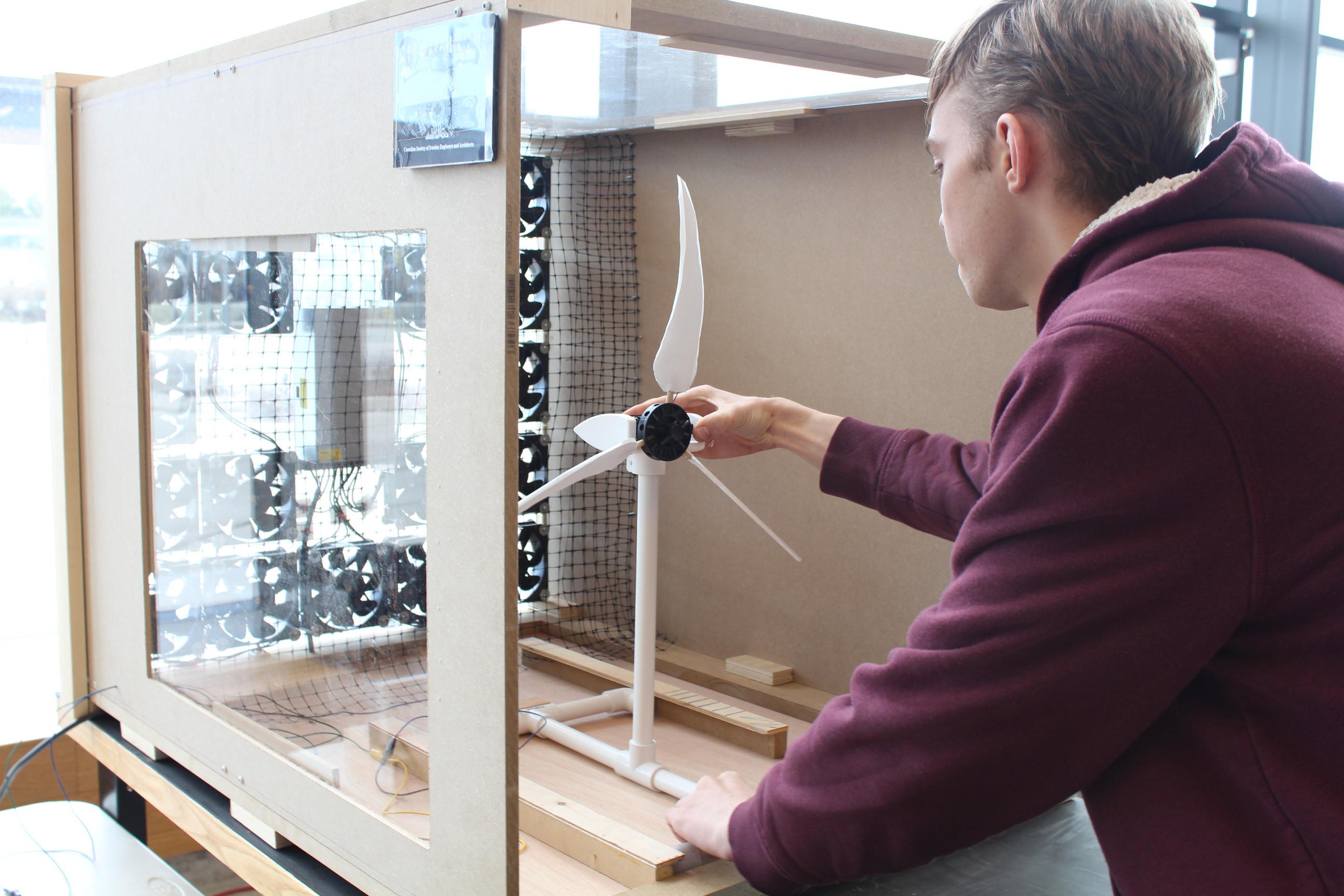
Dozens of high school students were recently at Humber College showing off their skills as part of a design challenge that tasked them with creating a wind turbine.
Hamid Dehkordi, a partial-load professor with Humber’s Faculty of Applied Sciences and Technology, helped organize the event that was held with the assistance of Mohandes, which is the Canadian Society of Iranian Engineers and Architects. Dehkordi is a member of Mohandes.
A total of 18 teams of four students each created their own wind turbines as part of the challenge.
The judges, who were from Humber College and Professional Engineers Ontario, judged the entries on their design and the voltage they produced when tested in a wind tunnel, which was designed and built at Humber. The winning team’s design generated 4.8 volts.
“It was a great experience and seeing how happy the students were was the best part for me,” said Dehkordi.

Next year, they want to change the tunnel to measure kilowatts to help demonstrate how much power the wind turbines are generating in relatable terms for the students. For example, Dehkordi said one kilowatt hour would power a current video game console for about six hours.
With 10 megawatts of energy, an electric car could drive for about 5,800 kilometers (about the width of the United States) or it could toast about 29,000 slices of bread.
One of the reasons to offer the challenge was to introduce the students to the concept of clean, wind-powered energy generation. It’s presented in an easy-to-understand way and the hope is they will leave inspired and ready to share what they’ve learned with friends and family.
As part of the challenge, Humber used its 3D printer technology at the Barrett Centre for Technology Innovation to create the wind turbines’ nacelle, which is where the gearbox and generator are mounted.
The winning teams received robotics kits from Canada Robotics.
They hope to make the design challenge an annual event and are considering an electric vehicle theme in the future.
This initiative was funded by the Humber College Community Partnership Fund. Dehkordi also thanked the Humber College Community Partnership Committee, saying without their help it would not have been possible to offer the youth the extracurricular activity.